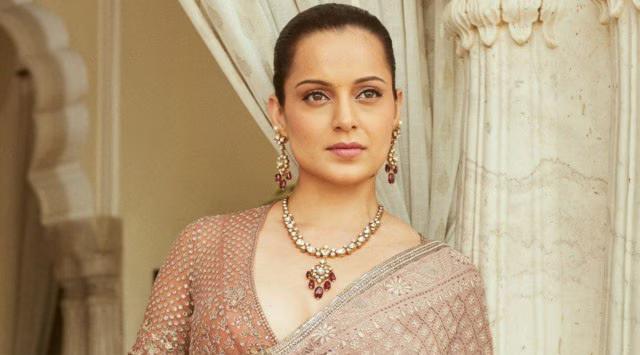
A Woman is Not Equal to a Man, We Have Different Roles: Kangana
The concept of equality has been a topic of much debate and discussion in recent times. While some believe that equality is a positive concept that should be strived for, others argue that it’s a utopian idea that can never be achieved. Recently, Bollywood actor and politician Kangana Ranaut expressed her thoughts on the topic, stating that a woman is not equal to a man and that we have different roles to play in society.
In an interview with Times Now, Kangana said, “Since the world has started believing that we’re all equal, we’ve only produced a generation of morons. We all have different roles and we are all different.” She went on to add, “A child isn’t equal to a woman, a woman isn’t equal to a man. We all have different roles and we are all different.”
Kangana’s statement has sparked a heated debate on social media, with many people expressing their disagreement with her views. While some have praised her for speaking her mind and being unapologetic about her beliefs, others have criticized her for being regressive and perpetuating gender stereotypes.
But what does Kangana mean by her statement? Is she suggesting that women are inferior to men, or that they have different roles to play in society? And is her statement a reflection of her own experiences and beliefs, or is it a commentary on the society we live in?
To understand Kangana’s statement, it’s important to look at the context in which she made it. In recent years, there has been a growing movement towards gender equality, with many people advocating for women’s rights and challenging traditional gender roles. While this movement has been important in bringing attention to the issues faced by women, it has also led to a backlash from those who believe that men are being marginalized and that traditional gender roles are being eroded.
Kangana’s statement can be seen as a reaction to this backlash, with her arguing that men and women are not equal and that we have different roles to play in society. While this may sound regressive, it’s important to recognize that Kangana is not saying that women are inferior to men, but rather that we have different strengths and weaknesses and that we should be valued for our unique contributions to society.
For example, Kangana may be suggesting that women are naturally more nurturing and caring, and that this is an important contribution to society. Similarly, she may be suggesting that men are naturally more competitive and driven, and that this is an important contribution to society as well.
It’s also worth noting that Kangana’s statement is not unique to her, but rather reflects a broader cultural and societal trend. In many cultures, women are still expected to take on traditional gender roles, such as caring for children and managing the household, while men are expected to be the breadwinners. This can lead to a sense of inequality and marginalization for women, who may feel that they are not being valued or respected for their contributions to society.
In conclusion, Kangana’s statement that a woman is not equal to a man and that we have different roles to play in society is a complex and nuanced one. While it may be interpreted as regressive or sexist by some, it’s important to recognize that Kangana is not saying that women are inferior to men, but rather that we have different strengths and weaknesses and that we should be valued for our unique contributions to society.
Ultimately, the goal should be to create a society where men and women are valued and respected for their contributions, regardless of their gender or role in society. This can be achieved by challenging traditional gender roles and stereotypes, and by promoting gender equality and equity.






